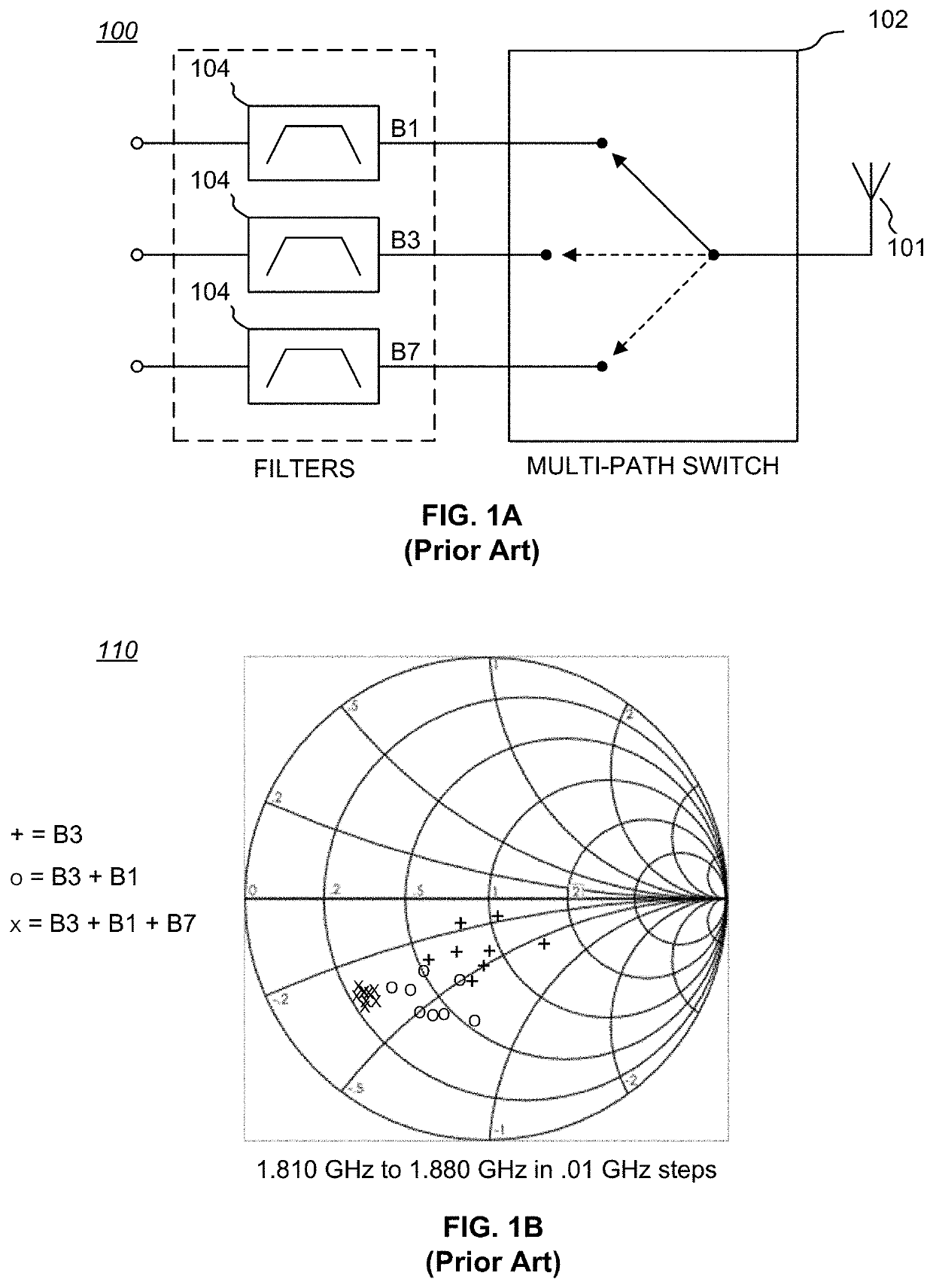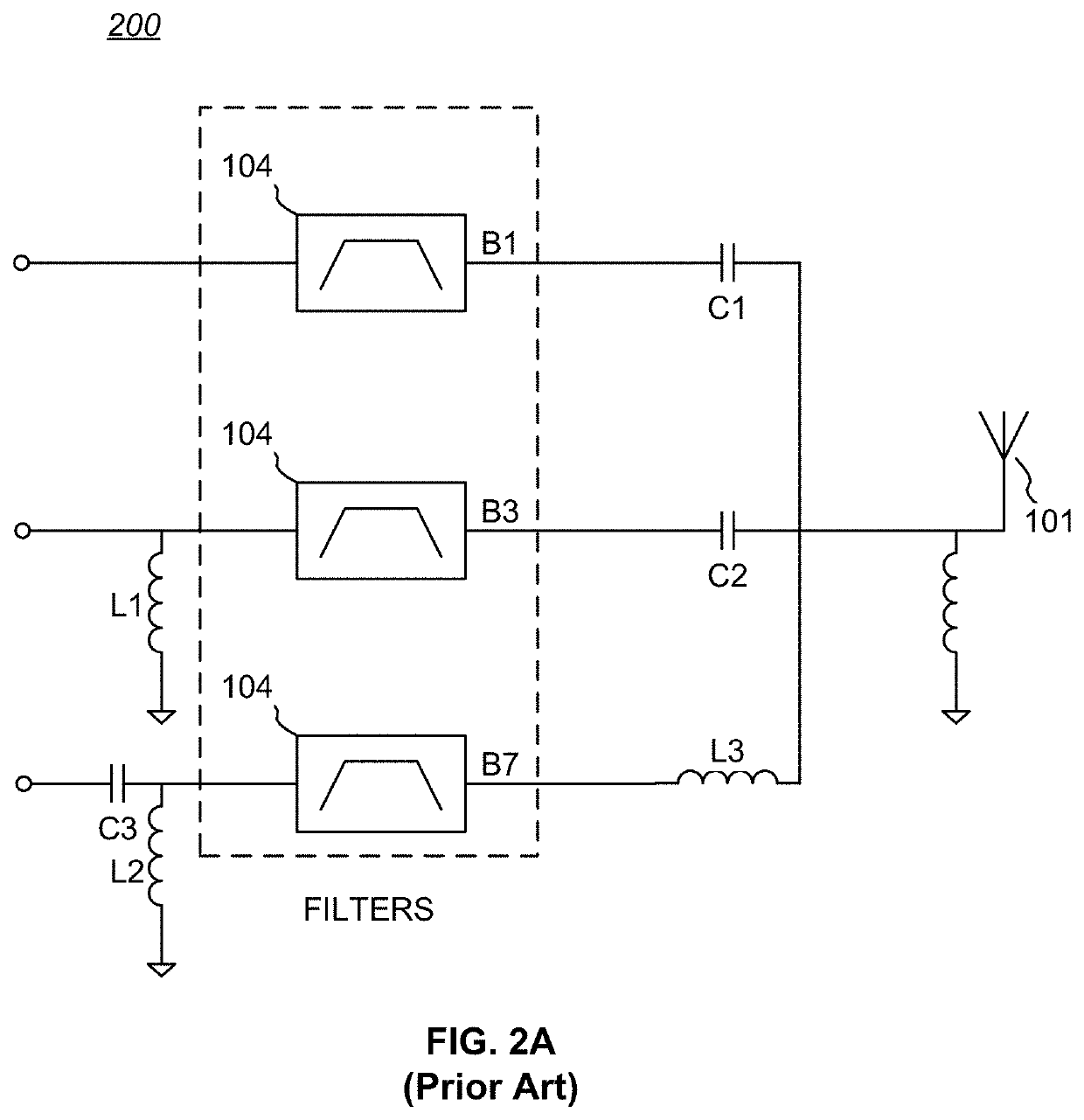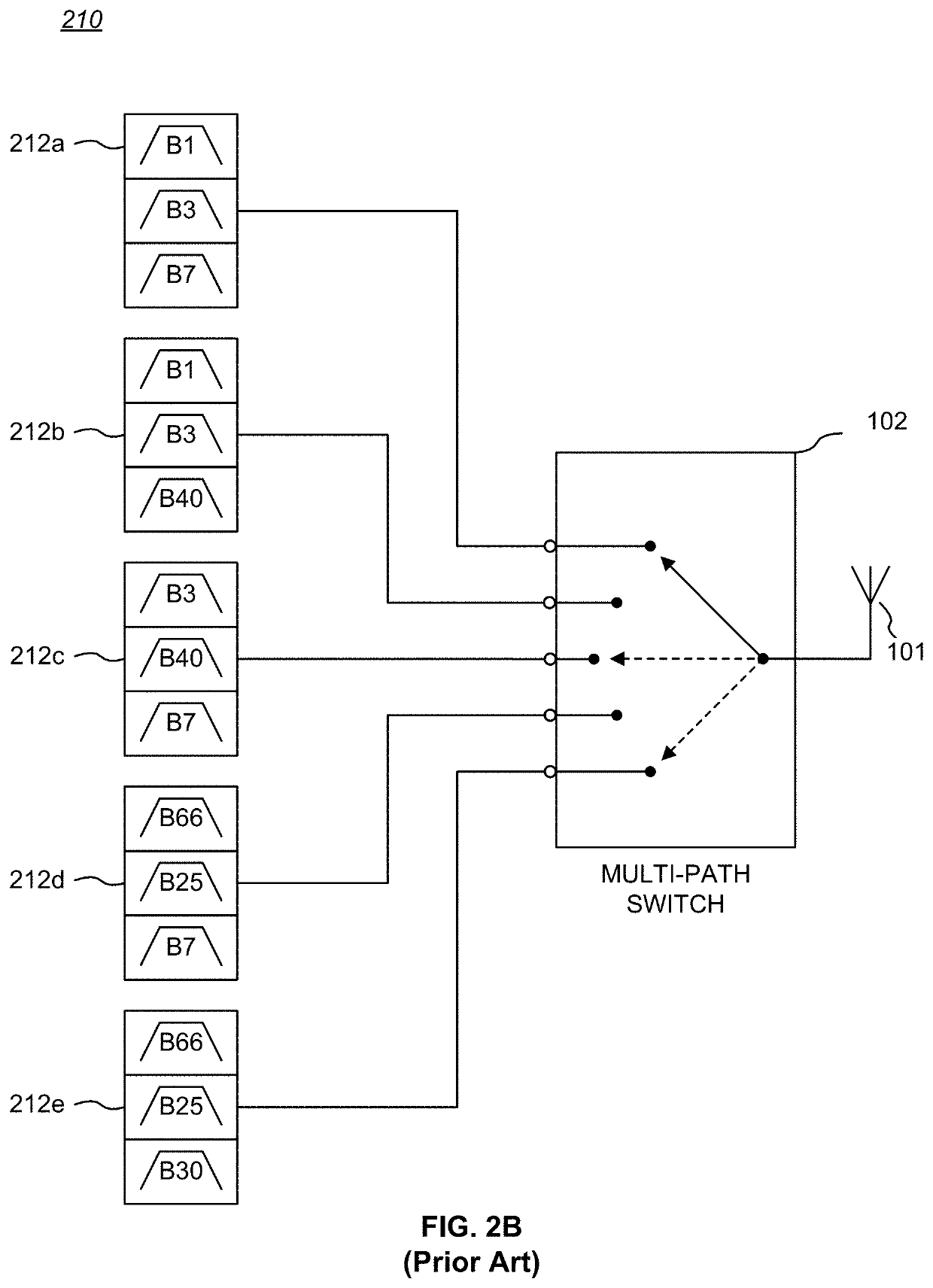Adaptive tuning networks with direct mapped multiple channel filter tuning
a filter tuning and adaptive tuning technology, applied in the field of electronic circuits of radio frequency, can solve the problems of preventing the free selection of band combinations with existing filters, unable to meet the needs of radio frequency systems,
- Summary
- Abstract
- Description
- Claims
- Application Information
AI Technical Summary
Benefits of technology
Problems solved by technology
Method used
Image
Examples
first embodiment
[0068]A number of useful TMN 306 designs may be used in conjunction with various embodiments of the invention. As one example, FIG. 5 is a schematic diagram 500 of a tunable matching network 306. The principal adjustable impedance tuning elements are a digitally adjustable capacitor element 502 (e.g., a DTC) and a digitally adjustable inductor element 504 (e.g., a DTL) coupled in series together, and shunt connected between the IN-OUT signal path and circuit ground. In one alternative embodiment, the adjustable inductor element 504 may be replaced by a fixed inductor, and thus only the capacitor element 502 provides adjustability. In another alternative embodiment, the adjustable capacitor element 502 may be replaced by a fixed capacitor, and thus only the inductor element 504 provides adjustability. In either case, the digitally adjustable capacitor and / or inductor elements 502, 504 may be internal or external to an IC. However, in a preferred embodiment, most or all of the compone...
second embodiment
[0070]FIG. 6 is a schematic diagram 600 of a tunable matching network 306. The illustrated TMN 306 includes two digitally adjustable capacitor elements C1, C2 coupled in series between the IN-OUT signal path and circuit ground, and a digitally adjustable inductor element L coupled between circuit ground and a node between the two adjustable capacitor elements C1, C2. As in FIG. 5, one or more of the adjustable capacitor and / or inductor elements may be replaced by a fixed element, so long as at least one adjustable impedance tuning element remains. For example, the inductor element L may be fixed and all tuning accomplished using one or both of the adjustable capacitor elements C1, C2. The example circuit illustrated in FIG. 6 is particularly useful because it enables coverage of more points on a Smith chart (not just a curve), thus providing a greater range of impedance matching adjustment than some other embodiments.
third embodiment
[0071]FIG. 7 is a schematic diagram 700 of a tunable matching network 306. In the illustrated embodiment, a set of two or more LC circuits each comprising a fixed capacitor Cn and a fixed inductor Ln may be selectively connected by corresponding switches Sn to the IN-OUT signal path to set a matching impedance value for of the tunable matching network 306. Thus, adjustability is provided by selectively coupling one or more fixed-element LC circuits onto the IN-OUT signal path under the control of a TMN Control circuit 308 (as in FIG. 3) rather than utilizing digitally adjustable impedance tuning elements such as a DTC or DTL. In an alternative embodiment, the LC circuits in FIG. 7 may be replaced by a set of transmission line (TL) elements of varying impedance values that can be selectively coupled to the IN-OUT signal path under the control of the TMN Control circuit 308.
[0072]Filter Pre-Match Networks
[0073]As noted above with respect to FIG. 3, optionally, some or all RF band filt...
PUM
| Property | Measurement | Unit |
|---|---|---|
| impedance | aaaaa | aaaaa |
| frequency | aaaaa | aaaaa |
| frequency | aaaaa | aaaaa |
Abstract
Description
Claims
Application Information
 Login to View More
Login to View More - R&D
- Intellectual Property
- Life Sciences
- Materials
- Tech Scout
- Unparalleled Data Quality
- Higher Quality Content
- 60% Fewer Hallucinations
Browse by: Latest US Patents, China's latest patents, Technical Efficacy Thesaurus, Application Domain, Technology Topic, Popular Technical Reports.
© 2025 PatSnap. All rights reserved.Legal|Privacy policy|Modern Slavery Act Transparency Statement|Sitemap|About US| Contact US: help@patsnap.com



